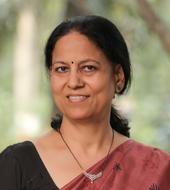Overview
The course is of 22 credits and a participant can complete the
certificate course within 12 months from the start of the
programme. This is an online distance learning programme where the
participants study, complete internship and term paper in their
country.
Learning to Learn (Non-credit)
The participants will be oriented and introduced to
the methodology of online classroom and the tools for communication
and interactions. They will also be guided through practical exercises
and will have the chance to clarify their concerns on the entire
learning process. Each session in a course will have a compulsory
reading, and the course will be further explicated with case studies
and other audio-visual material from diverse contexts. The assessment
method for each course will be communicated at the start of the course
by the tutor and students will have to maintain the minimum grade for
passing.
World of Red Cross(Non-Credit)
This module, introduces the participants to the World
of Red Cross and Red Crescent (WORC). The three main components of Red
Cross and their roles consisting of
- The International Committee of the Red Cross (ICRC),
- The International Federation of Red Cross and Red Crescent
Societies (IFRC) and 187 members Red Cross and Red Crescent
Societies will be discussed.
The role of IFRC and their work in field of disaster management and
humanitarian response will be traced in detail historically for
learning and understanding.
The Strategy 2020 will be elaborately discussed covering its core strategies such as
- Save lives, protect livelihoods, and strengthen recovery from disasters and crises
- Enable healthy and safe living, and
- Promote social inclusion and a culture of non-violence and peace.
To understand the entire cycle of disaster management, from disaster risk assessment and disaster risk reduction to disaster response and post-disaster recovery it is essential to understand the broader developmental context in which disasters and disaster management are situated.
More Details
This module provides a clear understanding of humanitarianism and humanitarian principles underlying the response to natural disasters and conflicts. It highlights the need for accountability and transparency during disaster responses through various practical examples and illustrations.
More Details
This module aims to develop a conceptual understanding of hazard, exposure, risk, vulnerability and disaster. The course explains how vulnerability (internal susceptibility or defenselessness) and hazard (an external event) interact to create disasters.
More Details
The objective of the module is to develop knowledge and a critical outlook on the different frameworks, approaches and methods for disaster prevention, preparedness and vulnerability reduction which include Conceptual Framework of Disaster Risk Reduction - the Hyogo Framework for Action, DRR Measures (Assessment, Early Warning, Natural Resource Management, Social and Economic Developmental Practices), DRR Planning, Hazard and Risk Reduction Strategies: Objectives of Disaster Risk Reduction, Understanding Resilience, Linking Vulnerability Reduction and Disaster Recovery.
More Details
Information communication Technology (ICT) and Geo-informatics Technology (GIT) have been widely used in planning, mitigation, and response in the disaster situations. Besides alerting of the crisis ICT can help us in diverse ways some of which includes disaster preparedness through computer, television, radio, HAM radio and community radio, internet, email, mobile, social media, blogging; emergency response applications like distress communication and deploying bio surveillance for critical diseases either in short or long term etc.
More Details
Disaster response in an important component in disaster management and has emerged as an important field of study in recent years. With the increasing incidence and intensity of disaster events, there is a constant demand from the field for people trained in the basics of disaster response. There is need to have a broad understanding of the multiple stakeholders involved in disaster response and the standards to be upheld in humanitarian aid, relief and rehabilitation and development. This course tries to address these concerns modestly by orienting the participants about various concepts relating to organized Response, Nature and Type of Immediate Response, Disaster Management Plans, Key Response Functions including Public Health, Logistics and Governance, Recovery, Rehabilitation and Reconstruction, Economics and Financial Aspects of Recovery and Reconstruction.
More Details
The Term Paper requirement is designed to be a unique self-study course for participants to the online certificate programme.
More Details
The Internship or Field Work in the certificate programme shall enable the participants to develop a broader national and international perspective on disaster management.
More Details


